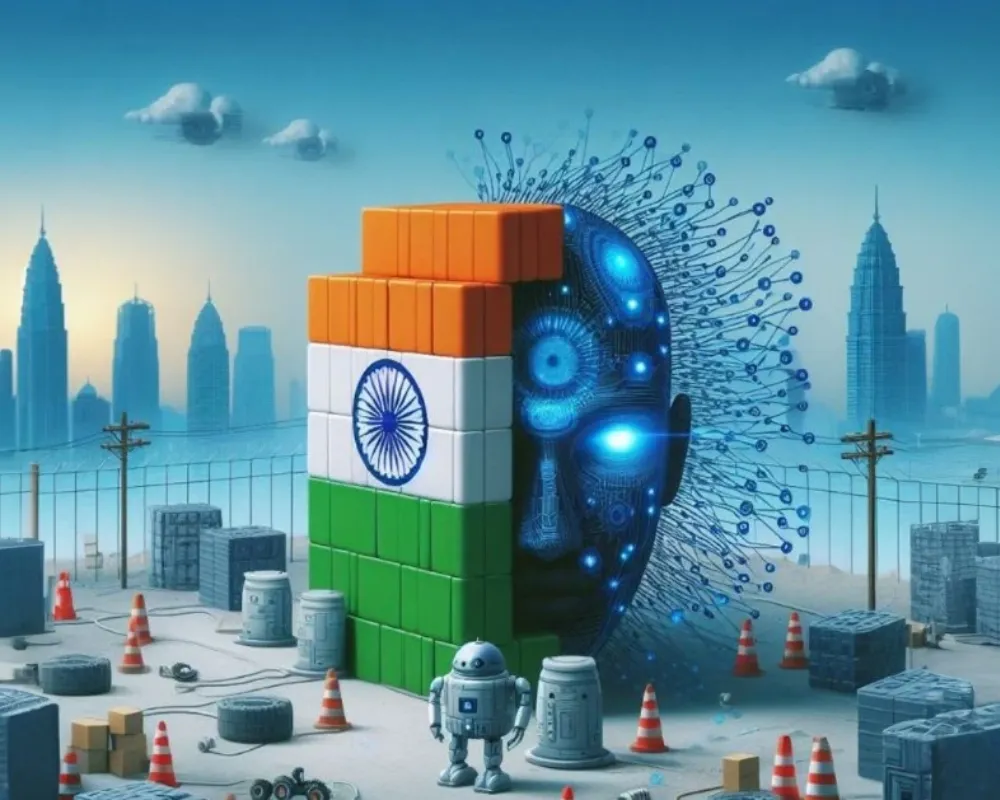Indian vertical AI startups are rapidly pivoting to enterprise solutions, leveraging deep domain expertise and cost advantages to solve industry-specific workflow challenges.
 Minaketan Mishra
Minaketan Mishra

BENGALURU, INDIA — India's burgeoning artificial intelligence (AI) startup ecosystem is witnessing a significant strategic pivot, with a growing number of "vertical AI" companies gearing up to serve large enterprises. These specialized AI firms are moving beyond generalized AI tools to develop bespoke solutions tailored for specific industries, promising to automate entire workflows and deliver measurable business outcomes across sectors like finance, healthcare, manufacturing, and logistics.
A recent report, "Vibe50 Emerging Vertical AI Startups," launched on July 10, 2025, by AI startup accelerator Upekkha, highlights India's unique advantage in this shift. The report projects global enterprise spending on domain-specific AI solutions to soar from a current $5 billion to $47 billion by 2030, growing at a Compound Annual Growth Rate (CAGR) of 40%. Indian companies are exceptionally positioned to capture a large share of this market, largely due to their deep talent pool, cost-effective research and development, and extensive experience in understanding global enterprise workflows gained from nearly two decades of IT services.
"The next $10 billion outcomes in AI will come from companies solving real workflow problems in specific industries, not from general-purpose platforms," the Vibe50 report notes. This sentiment reflects a global shift where corporations are increasingly seeking specialized AI systems that offer tangible returns on investment rather than broad, horizontal AI tools. Indian vertical AI startups are embedding AI directly into core business processes, from automating financial operations and enhancing diagnostics in healthcare to optimizing supply chains and reducing downtime in manufacturing.
Despite the immense potential, the transition to widespread enterprise adoption isn't without its hurdles. Enterprises, both in India and globally, have shown a degree of caution in fully integrating AI solutions at scale. A key challenge is what is termed the "pilot-to-production" gap, where a significant percentage of enterprise AI projects stall before achieving full-scale deployment. This hesitation stems partly from the rapid evolution of AI technology itself, leading some companies to adopt a "wait-and-watch" approach.
For Indian AI startups, this enterprise caution necessitates a deeper engagement with their clients' core business problems. Founders can no longer simply "build the tech and throw it over the fence," as industry experts note. Instead, they are compelled to work closely with enterprises to ensure their AI solutions deliver clear, measurable business value, fundamentally transforming the traditional Software-as-a-Service (SaaS) model into a more integrated, outcome-driven partnership.
Leading Indian vertical AI startups are already demonstrating this impact. Companies like Signzy (finance), DeepTek (healthcare), and Detect (manufacturing) are cited as examples in the VIBE50 report for their ability to deliver ROI-driven, industry-specific AI. Furthermore, government initiatives like the IndiaAI Mission, with its substantial outlay, are fostering a comprehensive AI ecosystem, providing crucial support for foundational models, compute capacity, talent development, and public-private collaborations.
Investors, too, are adjusting their strategies. While there was initial confusion in the venture capital space following the generative AI boom, clarity is now emerging around the immense opportunity in vertical and domain-specific AI applications. VCs are increasingly keen on backing startups that offer deeply integrated, AI-powered solutions that minimize manual intervention and promise competitive advantages through proprietary datasets and contextual expertise.
As India's AI market is projected to triple in value to approximately $17 billion by 2027, the focus on vertical AI is set to drive the next wave of innovation. With their unique blend of talent, cost-effectiveness, and understanding of both local and global enterprise needs, Indian vertical AI startups are well-positioned to not only solve complex industry-specific problems but also to emerge as global leaders in this transformative technological shift.






Sign up for the Daily newsletter to get your biggest stories, handpicked for you each day.
 Trending Now! in last 24hrs
Trending Now! in last 24hrs